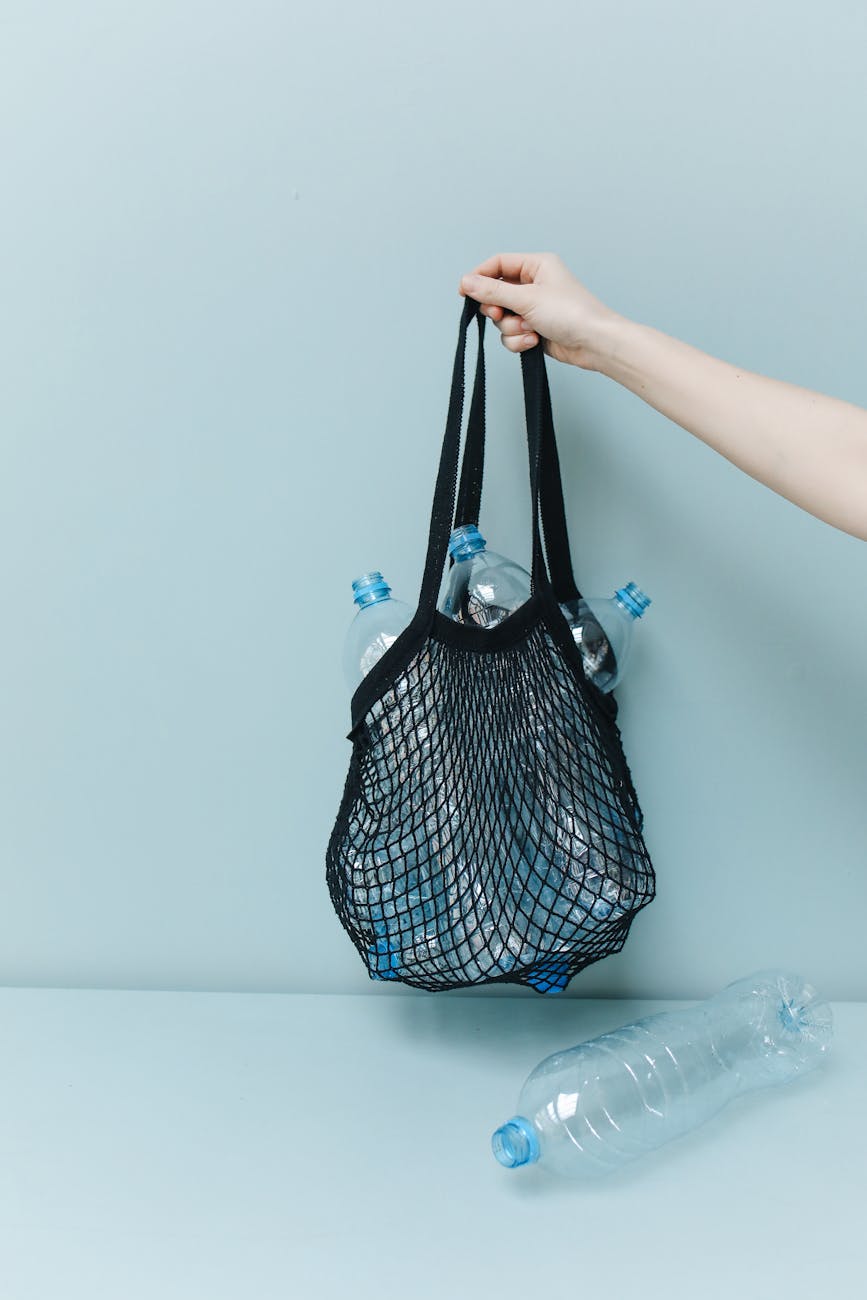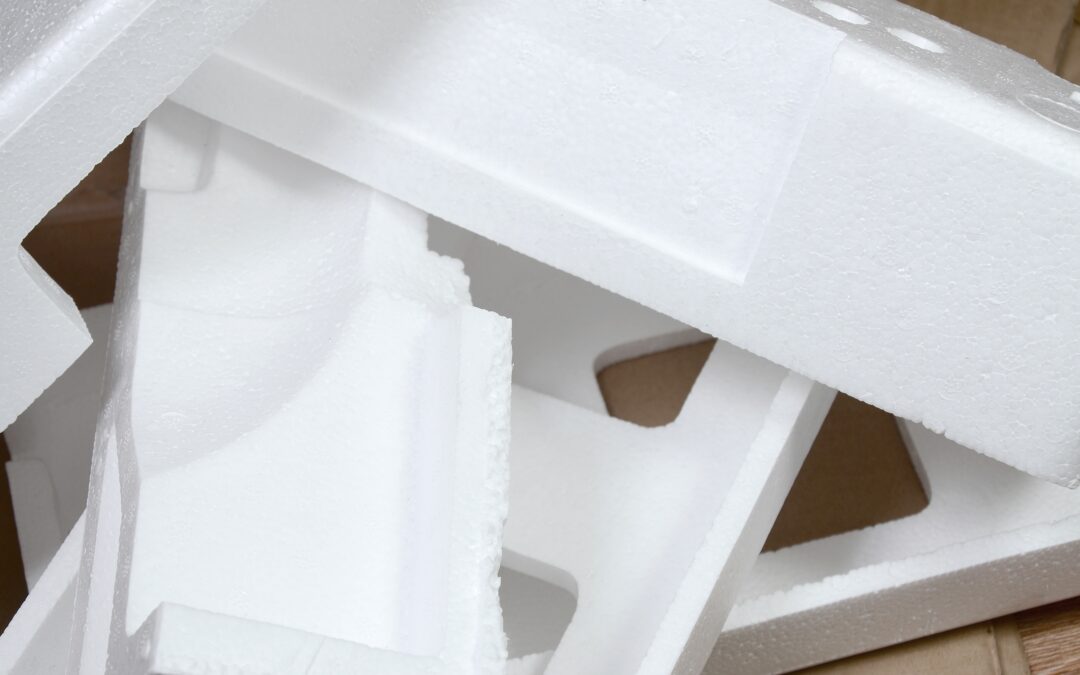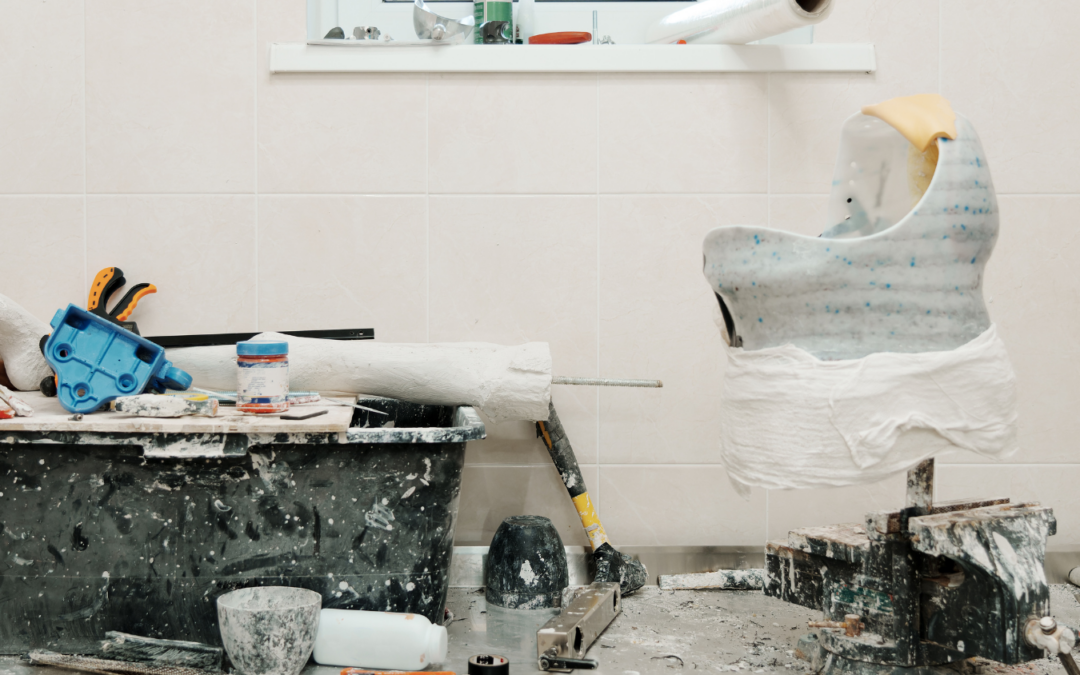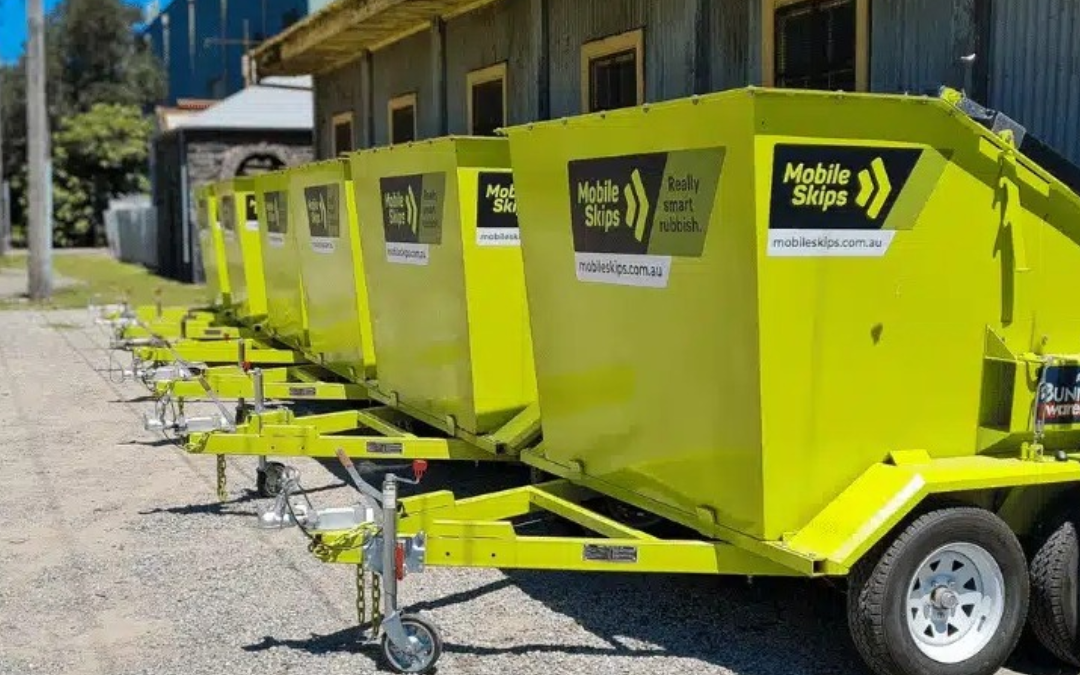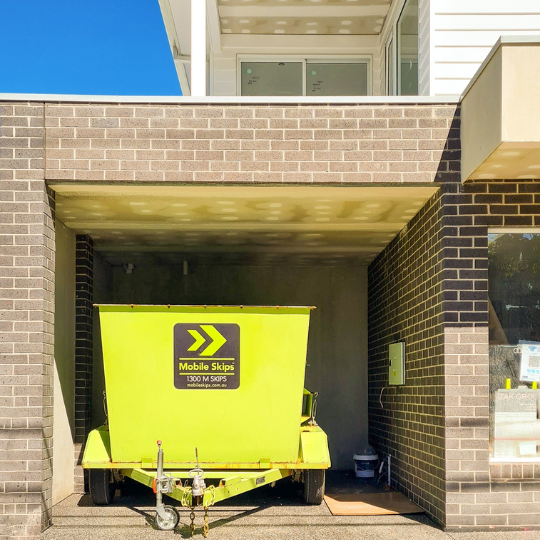Decluttering Your Home
Cleaning up your space isn’t just about making things look nice; it’s about creating a place where you can truly relax and live better. Let’s dive into why decluttering is awesome and how recycling fits into the picture.
Why Decluttering Rocks
Decluttering isn’t just about tossing stuff out; it’s about making your home a place where you can breathe easy. Here’s why it’s worth the effort:
- More Time for Fun: Less stuff means less time hunting for things and more time doing what you love.
- Chill Vibes: A clean space can seriously lower your stress levels.
- Home Sweet Home: A tidy home looks and feels better, making it a cozy spot for you and your friends.
By getting into decluttering and minimalism, you’re not just cleaning up; you’re setting yourself up for a more focused and mindful life. Need some tips? Check out our guide on how to declutter your house.
Why Recycling Matters
When you’re decluttering, think about where your stuff goes. Recycling isn’t just a buzzword; it’s a must because of all the junk we create every day (Clear the Clutter). Here’s why recycling should be part of your cleanup plan:
- Save the Planet: Recycling helps save natural resources and cuts down on the need to dig up new materials.
- Cleaner Air and Water: Recycling reduces pollution from waste.
- Energy Saver: It takes less energy to recycle stuff than to make new things from scratch.
- Job Creator: The recycling industry creates jobs and boosts the economy.
- Helping Hands: Donating items can support charities and help people in need.
By recycling and donating unwanted items, you’re doing your bit for a greener world and keeping junk out of landfills (Sustainable Living Association). Just starting out? Our decluttering tips for beginners can help you sort and recycle without breaking a sweat.
Making decluttering and recycling part of your routine is good for you and the planet. By thoughtfully getting rid of stuff, you’re helping create a healthier, more sustainable world.
Practical Decluttering Tips
Decluttering your home can change not just your space but also your mindset. Here are some down-to-earth tips to help you sort and organize, showing how starting small can lead to big changes.
Sorting and Organizing
Sorting and organizing might seem like a huge task, but breaking it down into bite-sized steps makes it easier. Zen Habits suggests a method: empty, sort, clean, and organize each area one by one, whether it’s a drawer, shelf, countertop, or closet. This way, every item gets its moment in the spotlight.
Start by emptying the space you’re working on. Sort items into piles: keep, recycle, donate, or toss. Give the area a good clean before putting back the stuff you’re keeping. Organizing what’s left should be a breeze now that you’ve cut down the clutter and can see what’s really important.
Remember William Morris’s advice: keep items that are either useful or beautiful. This helps you decide what stays and what goes, making the whole process more thoughtful.
For more detailed guidance, check out our decluttering checklist for home to help you stay on track.
Starting Small
The secret to successful decluttering is to start small. Focus on one area at a time—a countertop, a drawer, or a corner of a room. This keeps you from feeling overwhelmed and lets you gradually expand your efforts.
| Step | Task | Example |
|---|---|---|
| 1 | Pick a small area | Kitchen drawer |
| 2 | Set a timer | 20 minutes |
| 3 | Sort items | Keep, recycle, donate, toss |
| 4 | Clean the area | Wipe down surfaces |
| 5 | Organize and return items | Use dividers or containers |
Finish one small area before moving on to the next. This gives you a sense of accomplishment and builds momentum for tackling bigger spaces. Once you see the benefits in one spot, you’ll be motivated to keep going.
For those just starting out, our decluttering tips for beginners offer extra strategies to help you take those first steps. And remember, decluttering isn’t a one-time thing—it’s an ongoing process. To keep your space clutter-free, establish good habits and revisit your routine regularly. For more tips on maintaining a tidy home, check out our article on decluttering hacks for a tidy home.
Sustainable Disposal Methods
When you’re cleaning out your home, you’ll probably find stuff you don’t need anymore. Instead of just throwing it all away, think about ways to get rid of it that are good for the environment. Let’s look at how you can combine cleaning up and recycling into one eco-friendly process.
Recycling Paper and Plastic
Paper clutter, like school papers, newspapers, and other documents, can stack up fast. Recycling these items not only clears up space but also helps the planet. The same goes for plastic items like toys from fast food meals or party bags. Instead of sending them to the landfill, put them in the recycling bin. This not only tidies up your space but also saves resources and energy.
Here’s a quick guide to help you sort out recyclable paper and plastic:
| Material | Recyclable | Non-Recyclable |
|---|---|---|
| Newspaper | ✅ | ❌ |
| School Papers | ✅ | ❌ |
| Shredded Documents | ✅ | ❌ |
| Plastic Toys | ✅ (Check local rules) | ❌ |
| Plastic Bags | ✅ (At specific collection points) | ❌ |
| Plastic Straws | ❌ | ✅ |
For more detailed guidelines, check out our decluttering checklist for home that includes tips on how to sort your recyclables.
Upcycling and Repurposing
Upcycling is a fun way to declutter and recycle. It means taking items that you don’t need anymore and turning them into something new and useful. For example, you can turn mason jars into cool storage containers or use old baskets to organize your toys. This not only gives your items a new life but also adds a personal touch to your home.
Remember, the goal of decluttering is to create space and peace of mind. Be careful not to keep items just because you think you might use them for a project someday. This can lead to more clutter. For ideas on upcycling projects and how to avoid common pitfalls, visit decluttering and upcycling.
When you’re using these sustainable disposal methods, try these eco-friendly cleaning tips:
- Use a mix of baking soda and warm water instead of bleach-based products to clean grime and dust.
- Use essential oils in a diffuser instead of plug-in air fresheners, which often contain harmful chemicals.
By adopting these sustainable practices, you’re not just decluttering and organizing your home; you’re also helping the environment and possibly supporting social causes through donations. If you want more ways to declutter sustainably, check out our resources on decluttering and donating, which can guide you in supporting charitable causes while organizing your home.
Donating Unwanted Stuff
Helping Charities
When you decide to clear out your home, you’re not just making space for yourself; you’re also giving a hand to charities. Every item you donate can make a real difference. By keeping stuff out of landfills, you’re cutting down on pollution and saving resources, which is a big win for the planet (Clear the Clutter). Plus, these items either go straight to people who need them or get sold to fund charity programs, helping out the community.
Donating feels good and is way better than just tossing things out. Whether it’s clothes, books, or furniture, your donations can help those in need and support eco-friendly goals.
How Donation Centers Help
Donation centers are the heroes in the reuse and recycling game. They connect your unwanted stuff with new owners. By taking in things like gently used clothes, shoes, furniture, electronics, and books, these centers help cut down on household waste (College HUNKS Hauling Junk & Moving®).
Before you donate, make sure your items are clean and in working order. Here’s a quick look at what most donation centers usually accept:
| Item Type | What They Want |
|---|---|
| Clothes and Shoes | Clean, wearable, in good shape |
| Furniture | Functional, no major damage |
| Electronics | Working, with all parts included |
| Books and Media | Intact, not heavily damaged |
These centers not only find new homes for your stuff but also recycle anything that can’t be reused. This helps keep things green and supports your decluttering and recycling goals.
So, when you donate, you’re not just tidying up your space; you’re also making a positive impact on the environment and helping your community. It’s a win-win-win: you declutter, someone else benefits, and the planet gets a break. Think of donating as a key part of decluttering and organizing services you can give yourself while working towards a cleaner, greener home.
Environmental Impact
Cleaning up your home isn’t just about finding your sanity under that pile of stuff; it’s also a big win for Mother Earth. Knowing how to get rid of things the right way can cut down on landfill waste and boost recycling efforts.
Recycling Electronics
Got old gadgets? Don’t just chuck them in the trash. Electronics are full of nasty chemicals that can mess up the environment. Many cities have programs to recycle electronics, or you can take them to special facilities where they handle them safely, keeping those toxic bits out of our planet (Happy Organized Life).
For example, The Verge says Best Buy will take up to three devices per visit, though there might be some restrictions and fees. Staples also has a recycling program for a bunch of tech devices and even offers mail-in kits for a fee. So, with a bit of effort, you can find easy ways to make sure your old tech gets recycled properly.
| Retailer | In-store Recycling | Mail-in Recycling | Fee |
|---|---|---|---|
| Best Buy | Up to 3 devices per trip | Yes (for a fee) | Yes (for some items) |
| Staples | Wide variety of tech devices | Yes (for a fee) | Varies |
Reducing Landfill Waste
Being smart about decluttering means thinking about where your unwanted stuff ends up. Landfills are packed with appliances leaking toxins, mattresses that take forever to break down, and heaps of plastic that just keep growing (Sustainable Living Association). By recycling, you can help ease this burden on the environment.
Recycling doesn’t just cut down on landfill waste; it also helps the economy by creating jobs in recycling industries. Donating items can support charities and provide essential goods to those in need, making you feel good about giving back (Clear the Clutter).
| Action | Environmental Benefit | Economic Benefit | Community Benefit |
|---|---|---|---|
| Recycling | Reduces landfill waste | Creates jobs | – |
| Donating | Extends item’s life cycle | – | Supports charitable causes |
As you declutter your home, remember the bigger picture. Recycling electronics and cutting down on landfill waste means you’re doing your part for a healthier planet and a more sustainable future. For more tips on keeping your home clutter-free and eco-friendly, check out home decluttering tips.
Keeping Your Space Tidy
You’ve done the hard part—decluttering your home. Now, the trick is to keep it that way. Building habits to maintain a clutter-free space is key to making sure your efforts stick.
Building Clutter-Free Habits
Keeping your space tidy boils down to forming good habits. Here are some tips to help you stay organized:
- One In, One Out: Every time you bring something new into your home, get rid of something else. This keeps your stuff from piling up.
- Regular Declutter Sessions: Set a time each week or month for a decluttering session. It could be as simple as sorting through a drawer or a shelf. Regular sessions keep clutter from sneaking back in.
- Think Before You Buy: Before buying anything new, ask yourself if you really need it and where it will go. This helps stop those impulse buys that lead to clutter.
- Use a Checklist: Find or make a decluttering checklist for home to guide you through the areas that need regular attention.
Make these habits part of your routine, and your space will stay roomy and calm.
Stopping Clutter Before It Starts
To keep clutter from coming back, try these ideas:
- A Place for Everything: Make sure everything in your home has its own spot. This makes it easier to tidy up and find things when you need them.
- Smart Storage: Invest in storage solutions that fit your space and keep things out of sight. Think shelves, boxes, or drawer organizers.
- Tame the Paper Monster: Paper can pile up fast. Set up a system to manage mail, bills, and documents, like a filing system or a digital tool (decluttering and digital organization).
- Go Minimalist: Embrace decluttering and minimalism to keep your space simple and free from unnecessary stuff. This doesn’t mean living with nothing; it means everything you own has a purpose or brings you joy.
By using these tips, you can enjoy a clear and organized space every day. It’s not just about having less stuff—it’s about having more room to live your life and focus on what really matters. If you’re just starting out, our decluttering tips for beginners can help you get on the right track. Remember, decluttering is a journey, and with the right habits, it leads to a more peaceful and productive environment.

